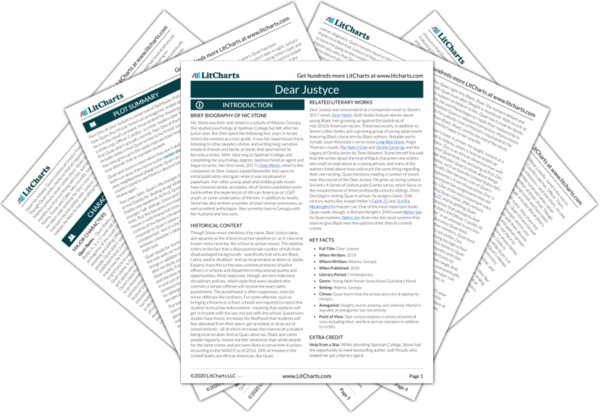Hearing that Justyce’s dad can also be violent impresses upon Quan that he’s not alone in navigating domestic abuse. There’s at least one other boy—and probably more—in his community who lives in a similar state of fear and dread that he does. But even if Justyce and Quan can’t rely on their parents to support them and give them a safe place to live, their meeting and passing understanding shows that the boys can find companionship and support elsewhere, like in each other. Friendship, in other words, will become extremely important for these two, especially in the absence of supportive family.


